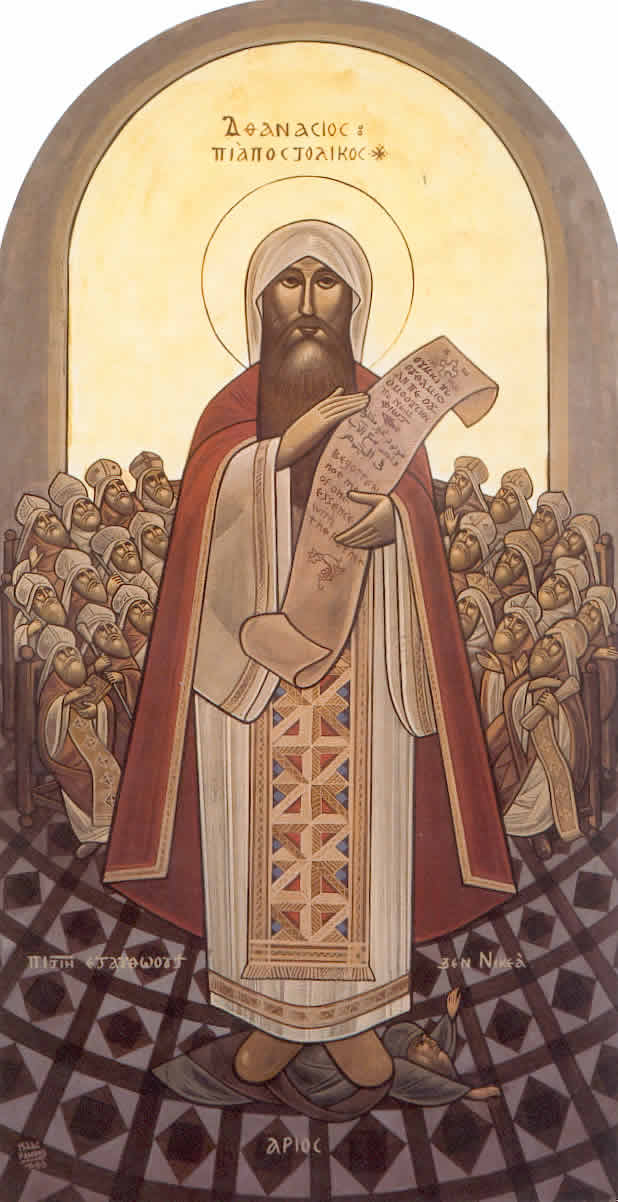St Athanasius of Alexandria
Few prelates have had such a tumultuous career as Athanasius (296-373) or such a roller-coaster career arc. He was born into a prosperous Egyptian family and seems to have spoken and written in both Greek, the cultural language of the Roman Empire, and the local Coptic. Alexandria was a rich city and one of the cultural capitals of the civilized word with a reputation for its schools of philosophy.
Athanasius’s life in the church (he became a deacon and a priest in his early 20s) would be spent in the midst of the great Christological debates of the fourth century. Though Christians had since the earliest days of the Church regarded Jesus as divine, his exact relationship to God the Father had never been exactly determined. One view, which had considerable support in Alexandria and the Middle East, was that Jesus was a subordinate creation of God. The advancement of this view by the Egyptian priest Arius caused controversy in the wider Christian community and led to the Emperor Constantine in 325 summoning the First Ecumenical Council to Nicaea to rule on the question. Athanasius attended and took an anti-Arian stance which the Council strongly affirmed. When he became Patriarch of Alexandria in 328, Athanasius found himself opposed by number of prominent eastern bishops who continued to back Arius. They conspired against him and brought a number of preposterous charges which got a hearing in Constantinople. In 335 Athanasius was deposed from his see and exiled to Trier in Gaul. He returned to Alexandria after the death of Constantine, who was succeeded by his three sons who split the empire among themselves.
The emperor Constantius, whose territory included Alexandria, ordered Athanasius evicted once more but the bishop found refuge with Constans, the imperial brother ruling the West, including Rome. He stayed in the West gathering support for his anti-Arian theology for over 7 years until he was allowed to return to Alexandria in 346. Ten years later, however, Constantius, even more an Arian than ever, ordered the arrest of the patriarch who fled up the Nile into exile again, though he continued to write vigorously in opposition to subordinationist Christology.
The death of Constantius in 361 allowed Athanasius to regain his position but it brought to power Julian the Apostate, the last pagan emperor of Rome, no friend of Christianity. Julian, of course, ordered him into exile once more. Athanasius was reinstated at the death of Julian by Jovian, a Christian emperor, but was exiled for the fifth and last time by the emperor Valens, an Arian. Valens eventually relented and Athanasius once more assumed the patriarchate until his death in 373. The statement of belief called the Athanasian Creed was not, in fact, one of his works but seems to have appeared a century later.
